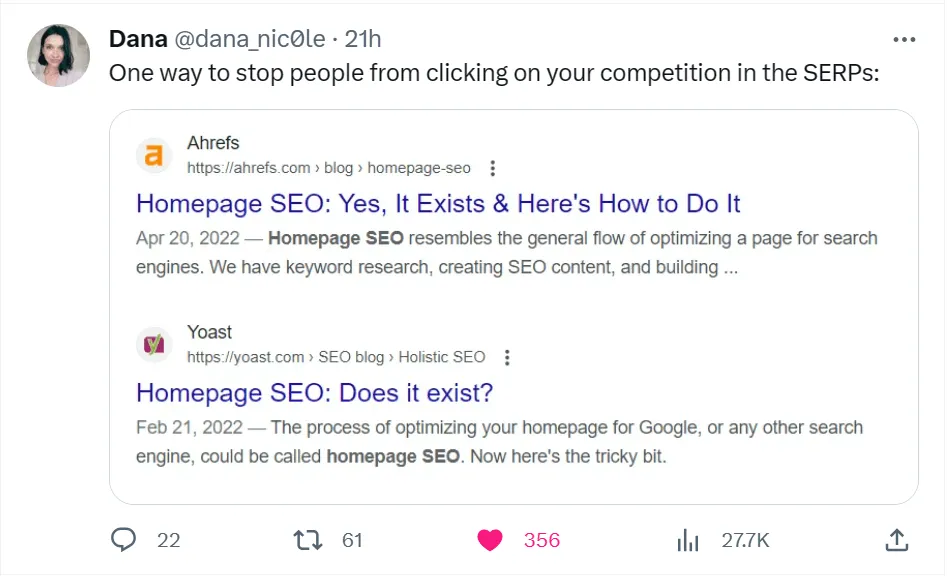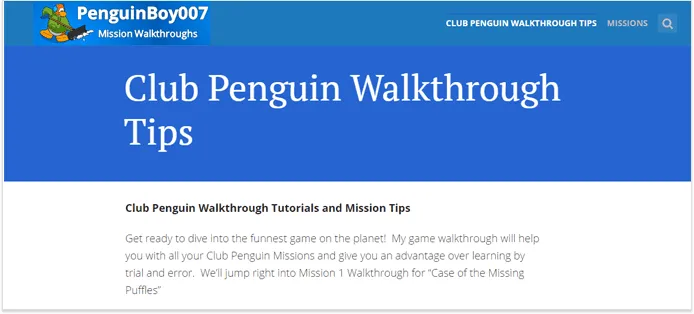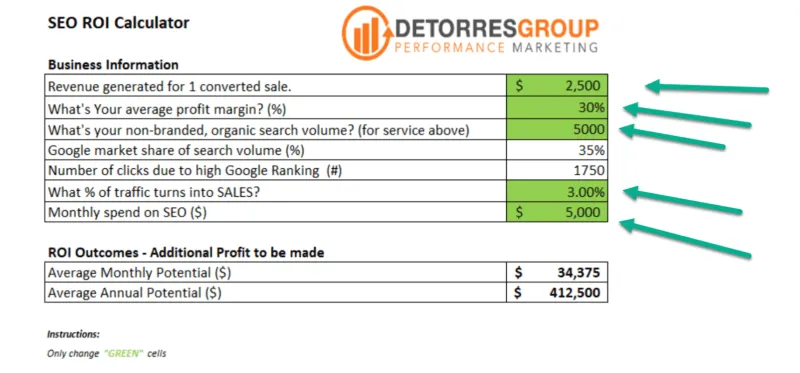Why Regular Rank Tracking is Pivotal For SEO Success

Catalina Grigoriev
November 5, 2023
Learn the benefits of regular rank tracking and how it directly correlates to SEO success. [Examples and SME Insights Included.]
In the world of SEO (search engine optimization), rank tracking is a bit like checking your progress in a race. In both situations, you’re bound to ask questions like:
- What’s your progress looking like?
- What are your competitors doing?
How can you move into first place?
In the long run, if you keep asking yourself these questions regularly (and consistently track your keyword/website rank), the benefits will far outperform the efforts put into the task.
What might these benefits be, you ask? Well, that’s exactly what we’re discussing in the article.
On that note, let’s dive in to understand the benefits of rank tracking and why regular rank tracking is pivotal for SEO success.
The Evolution of SEO and Search Algorithms
One might think that the birth of SEO began with the popularity of Bing and Google.
However, SEO was still a thing in the 1900s, when names like Archie, WebCrawler, and Lycos loomed large on the internet.
Back then, SEO was far less technical and only required keyword stuffing. But since the emergence of the popular search engines we know today, SEO has become more technical.
Aside from just keywords, the algorithms of these major search engines even account for links, images, mobile optimization, content quality, search signals, user experience, relevance, accuracy, content structure, etc.
So, if you find your website/keyword rank going up or down a notch, target keywords or content length might not be the only things to account for — you might benefit from conducting an SEO audit (through tools like Semrush, Ahrefs, and Ninja SEO) and finding gaps in your strategy.
Identifying New Opportunities and Threats
Identifying new opportunities and threats is one of the biggest reasons SEO folks regularly track rankings.
For example, after realizing its competitor, Yoast, was ranking particularly well for a keyword, Ahrefs saw an opportunity to steal the attention of its competitor’s audience.
 Source: Twitter
Source: TwitterIn another instance, Debbie Chew, the Global SEO Manager of Dialpad, said when her team was working on an e-commerce product, regular rank tracking revealed a high-value product category steadily declining in rankings over a few weeks.
After an investigation, they found a technical issue had caused a drop in page speed, negatively impacting the user experience.
Her team promptly addressed the issue, optimized the page for speed, and saw rankings improve instantly — something that wouldn’t have been possible without the effort put into finding out where they ranked on SERPs (search engine results pages).
Staying Ahead of Algorithm Updates
Search engines like Google update their algorithms thousands of times in any given year. Some of these are significant updates that can severely dampen your SEO performance.
The only way to understand how intensive their effects would be is to track rankings regularly. This way, you can even proactively set strategies based on potential algorithmic indications.
Consider the case of Marshal (the President of Ascendly Marketing and an AccuRank user). He experienced a large-scale ranking drop due to a recent Google update, and thanks to regular rank tracking, he could assess the situation and understand the direct side effects of this update on website traffic.
With this data on hand, his team made immediate changes to their SEO and keyword strategies and could regain lost rankings and improve keyword performance.
 Screenshot by Marshal Davis
Screenshot by Marshal DavisMonitoring Local and Global Performance
Keeping an eye on how your website is doing in different areas, both locally and around the world, is really important, especially if your business serves many places or has customers worldwide.
This is mainly because most of your audience isn’t going to go beyond page #3 to find the answers they need — so if you wish to get their attention fast, you’ll need to improve your website's ranking (and stay consistent with it).
If, for some reason, your rankings are declining, you can conduct SEO audits, study website traffic and conversions, and talk to customers from different regions to understand what more you can do to improve the user experience.
Regular rank traffic is also beneficial for global and local SEO as it’ll help you understand trends, analyze competition (on a global and local scale), check popular keywords in both areas, and help geo-target your customers.
Validating SEO Campaigns and Projects
Most SEO campaigns and projects are developed with one clear goal: to increase impressions and get customers.
If your website isn't ranking for the necessary keywords, that clearly indicates something’s not working with your SEO campaign, and it might need some revisions.
Alternatively, you can also study the SEO strategies of your competitors through regular rank tracking. For example, consider the case of Scott Paxton, the winner of an ApexForum contest.
After regularly studying its competitors' keyword lists and search volumes and finding patterns of what’s working well for them, he created a brand-new website that regularly ranked in the top five positions when searching for the keyword “Club Penguin Walkthrough.”
This website even outperformed its competitors by getting the maximum number of free visitors.
 Source: Link Assistant
Source: Link AssistantIn other words, rank tracking can help you make informed decisions that drive genuine results.
Quantifying Return on Investment (ROI)
Let’s be real: SEO requires a lot of investment (and we’re not only talking about financial investment but also time investment, labor investment, resource investment, etc.).
And because so much goes into it, it only makes sense that you can calculate the ROI of these investments.
Rank tracking is one of the things that allows you to measure the ROI of your SEO efforts, as you can:
- Witness your website/keyword ranking history
- Check if you’re meeting your goals
- Find how you rank against your competitors
- Analyze the increase in website traffic, conversations, and revenue (as it directly relates to your ranking)
Get keyword-level ROI
One easy way to understand if you’re getting positive ROI from your SEO investment is to use this formula: ROI = (Money Made From SEO - Cost of SEO) / Cost of SEO.
The money made from SEO is found by multiplying the many people that visit through search, how many of these visitors are likely to buy, and how much they usually spend. On the other hand, the cost of SEO is the total of all the expenses for SEO work, like salaries and tools.

Source: Detorresgroup
Pro tip: Leverage free tools like Google Analytics and Google Search Console to help fill in the data gaps required for this calculation.
Informing Content and Link Building Strategies
Since content and links play a huge part in your search engine rankings (and your SEO strategy as a whole), regular rank tracking will allow you to measure the factors and valuable insights companies use to distinguish themselves based on content and links alone.
For example, through regular rank tracking, you can find patterns in content topics, article structures, tonality, relevance of headings, content length, link types, anchor texts, backlink topics, etc.
Additionally, you might also be able to:
- Find seasonal trends
- Optimize your content creation
- Incorporate new link-building strategies
- Identify gaps (and find areas of opportunities that your competitors aren't presently targeting)
- Understand user intent
Find the impact of certain content styles/links vis-a-vis article performance over time.
Enabling Swift Reactions to Market Changes
As we discussed earlier, one of the key advantages of watching your rankings over time is that it provides real-time data, allowing you to detect any immediate issues, understand algorithm updates, and find user intent.
And with this real-time data on hand, you can quickly develop agile SEO strategies that can keep up with this change.
For example, when the Google Medic update launched, certain content pieces that medical professionals didn’t write or review were penalized (read: ranking positions dropped). If you were someone who wrote health/wellness articles, you could witness your website’s rank changes in real time. To combat this, you could set up an updated SEO strategy to get the input of medical professionals.
Or, at a time like the COVID-19 pandemic, many customers were looking for affordable options to shop for during the holiday season. If you were a company that kept up with the keyword rankings at that hour, you could easily change your long-tail keyword strategy to capitalize on the attention of folks who looked up search terms like “affordable holiday shopping in [location].”
Or, if you check your search rankings and notice a type of content structure working really well on mobile devices for a competitor that leads them to get search snippets and boosts their ranking score, you can try replicating their content structure, too.
Perform Regular Rank Tracking With AccuRanker
If you’re convinced about the benefits of regular keyword rank tracking, the next step on your journey would be to look for an accurate rank tracker (especially if you’re a brand that’s seriously invested in its SEO strategy and has multiple articles ranking for a different list of keywords).
And that’s exactly where AccuRanker can help you. As a matter of fact, the term “accurate rankings” is embedded in our name.
But why AccuRanker, you may ask? Here are a few things that’ll have you convinced to become a user:
- We have a rating of 4.8/5 on Capterra (and multiple awards from other review sites).
Our product is affordable, easy to use, and always provides accurate keyword positions.
To understand the full capabilities of AccuRanker, sign up for a free demo with our executives and learn how regular monitoring can assist you in your business! Are you ready to boost your organic traffic?
Related blog posts

5 LLM Visibility Metrics You Should Track in 2026
SEO is now both about ranking in search engines and being visible in LLMs. We give you five visibility metrics every SEO should track in 2026.
3 December 2025Is LLM Tracking Relevant for You?
LLM tracking is not just for SEOs. It is also relevant for content teams, agencies, marketing leadership, and communication teams. Learn why here.
26 November 2025
How to Find the Best Prompts to Track for AI Visibility
Do you want to start tracking prompts to optimize your AI visibility? We give you seven practical ways to identify relevant prompts to track in LLMs.
9 November 2025
